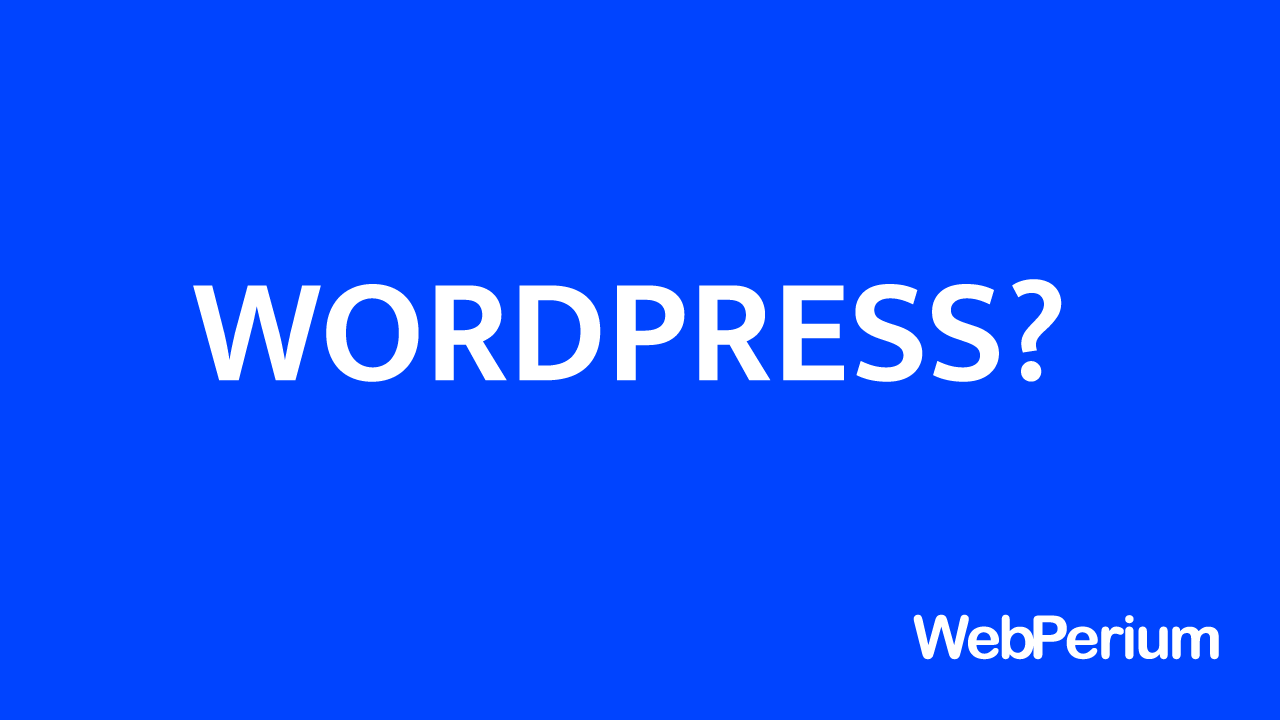WordPress powers over 810 million websites, or about 43% of all the websites in the world, easily making it the most popular CMS on the planet. But, just because it’s popular and widely used, does it mean it’s the right solution for your business?
Why is WordPress so popular?
WordPress is relatively easy to install, even so that most web hosting providers provide a one-click WordPress installation to lure small business owners into purchasing a web hosting package from them. With one click, wannabe website owners get a hosted website with publishing capabilities that are intuitive and fairly easy to learn. It also has a built-in media library that makes it easy to upload and resize images into pre-configured dimensions. No more having to use FTP to upload dozens of HTML files, CSS, JavaScript, and images to the server – it can all be done through the GUI.
What began as a simple blogging platform got more and more complex over the years, not only in its core functionality, but with the additional capabilities provided by free, freemium, and paid plugins available in the WordPress Plugin Directory. With the installation of a few plugins, website owners can transform a blogging platform into a full blown CMS with multiple authoring capabilities, a review and approval system, a forum, photo galleries, forms, sliders, customized search results, and more and more and more. The list could go on for several pages. This is when things get complicated and can slowly get out of control.
WordPress is the right choice if you have a team constantly producing fresh content that needs to be rolled out on a weekly or even daily basis. It’s the right choice if you have a team of developers that can monitor the website and resolve any issues that may come up either from user updates, plugin updates, or security patches that simply cannot wait. It’s not the right choice if you hardly ever make updates to the website, don’t need a login system, don’t need a content review and approval system, and don’t have a team to manage the website. Oftentimes I see SMBs and personal websites running WordPress when they absolutely have no business running WordPress.
Continuous Updates
After your shiny new website has been launched, you quickly realize how often WordPress core and plugins get updates. Before you know it, there’s an alert in your Dashboard to upgrade WordPress or one or more plugins, sometimes several plugins. Usually you have a few days to update, but if the update patches a security vulnerability, you have to update ASAP, or worse, in some extreme cases, WordPress will force an automatic update, usually in the middle of the night when no one on the team is watching the website.
As WordPress is an open-source platform, plugins are provided and maintained by thousands of individual contributors and companies with little or no collaboration to ensure that their plugins are compatible. With the average corporate WordPress website having 50 to 150 plugins installed, you can be sure that once in a while you will run into issues where plugins are affecting one another’s functionality, the theme, or causing some other aspect of the website to not function properly, forcing the development team to quickly troubleshoot the issue, come up with a reasonable solution, test it, and deploy to production. Depending on your production schedule and commitments, this can be very disruptive to the normal workflow.
Advantages
As I mentioned above, WordPress is relatively easy to install and set up, and with the choice of thousands of free plugins and themes available for download, one can have a brand new website up and running fairly quickly.
WordPress also has a fairly large community of users where members can share knowledge, tips and tricks, and reach out for support and help each other out.
WordPress is absolutely free, you don’t need to spend a dime to get WordPress installed, other than your regular hosting fees of course.
Disadvantages
As WordPress is open-source and relies on the contributions of thousands of individuals and companies, it’s more vulnerable to hacking and other security threats. Luckily WordPress has a strict review and approval process to get plugins approved, but once in a while some vulnerabilities make it through and get discovered later after a plugin has been approved and installed on thousands of websites.
A WordPress website requires on-going maintenance and updates to keep up with security vulnerabilities and added functionality. As your website grows larger and larger with additional functionality and complexity, this can become a very time consuming routine with the necessary testing and deployment required for each update.
As your website grows with additional plugins and functionality, it can become a resource hog causing everything to run slower than usual.
Alternatives
If you have a simple brochure website with small monthly or quarterly updates, then WordPress is definitely not the right choice for all the reasons I mentioned above. There are many better alternatives out there like static site generators, no-code site builders like Webflow, and other headless CMS systems that decouple the content and logic layer which greatly increases flexibility, scalability, performance and security. Needless to say these alternatives are lightning fast as there are very few or no database queries.
If your website is running on WordPress and you’re looking for a better alternative, or to improve your current website performance, have our team run a full analysis to see how we can improve your website performance and streamline the maintenance and update process to save you time and money.
